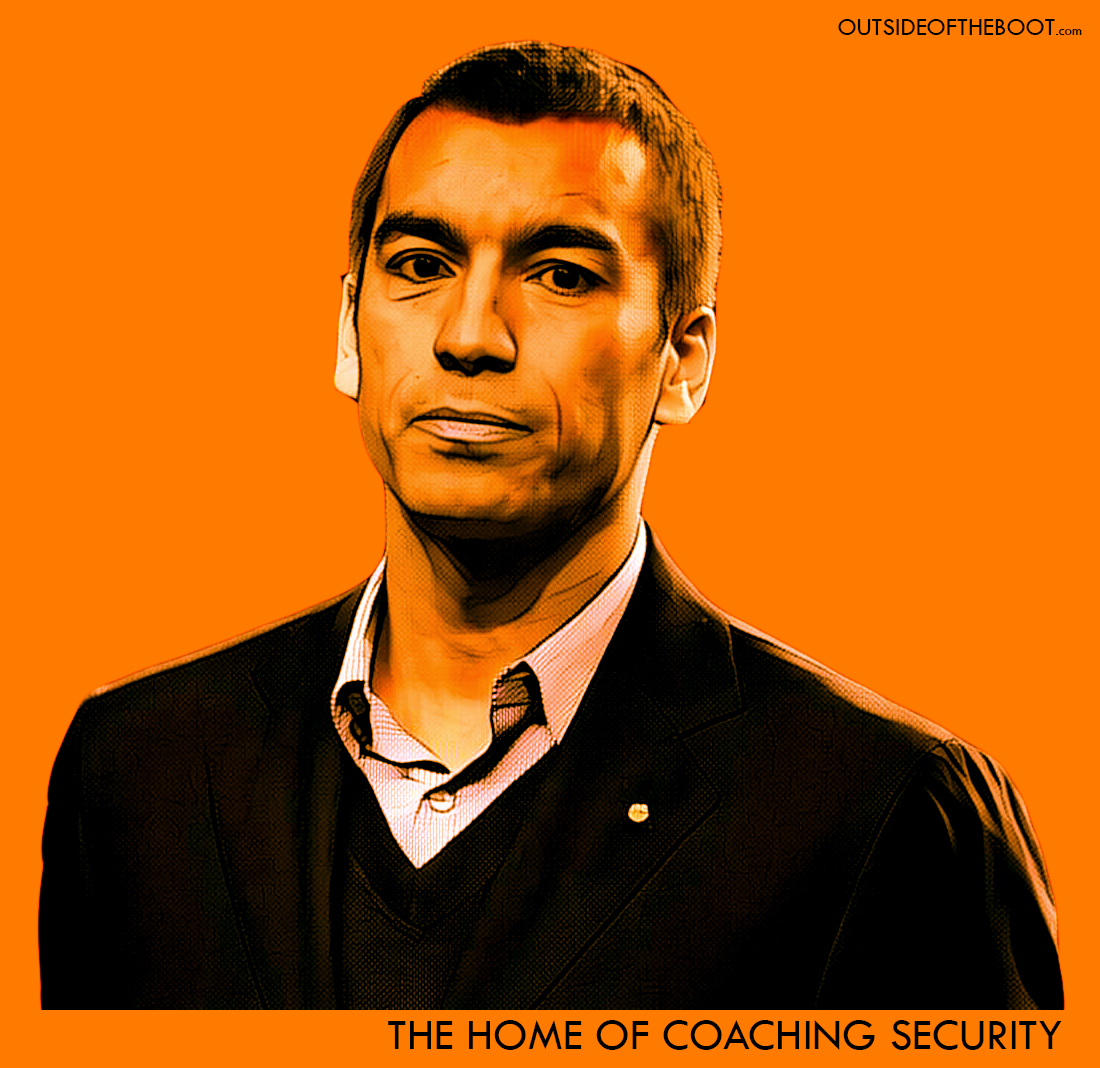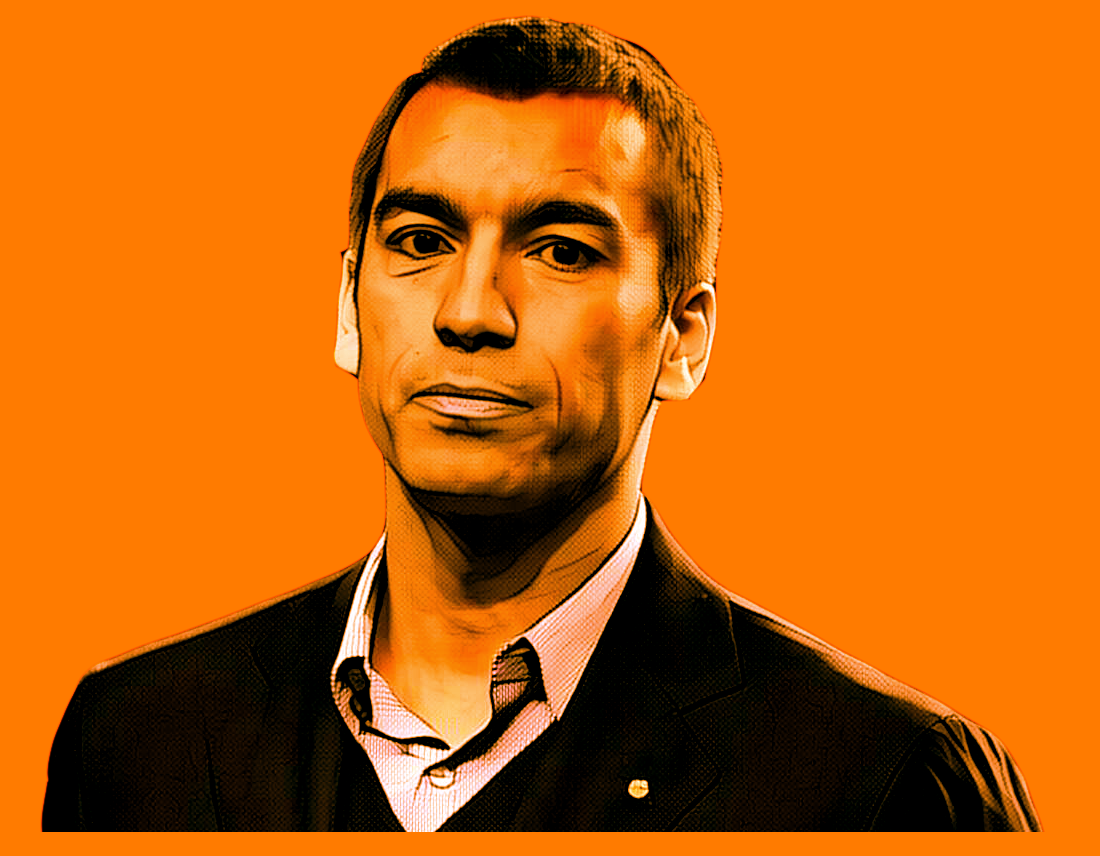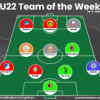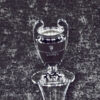
Steven Davies has a look at why he thinks the Eredivisie is the home of coaching security.
On Tuesday 7th February relegation-threatened ADO Den Haag announced that they had sacked their head coach, Zeljko Petrovic following a disappointing first half of the season.
The Montenegrin’s removal hardly came as a shock – having been appointed as ADO boss last summer following former coach, Henk Fraser’s move to Vitesse Arnhem, Petrovic had initially seen his new charges take ten points from their opening four games before going into freefall – winning just four times in 21 outings in all competitions thereafter.

With the club languishing in 16th place in the Eredivisie standings and occupying a relegation play-off place – just a point ahead of bottom-of-the-table, Go Ahead Eagles, the club’s technical director, Jeffrey van As told NOS that, given the side’s precarious league position, the club felt they had to act before it was too late, “During the weekend we had many talks and all parties gave their opinion about the current situation and this morning we shook hands and decided to go our separate ways. We are currently in a position where we will play the relegation play-offs and that is something that we do not want.”
Just a day later, former VV Katwijk, Willem II, Den Bosch, Jong Ajax and Excelsior coach, Alfons Groenendijk was unveiled as Petrovic’s successor – the 52-year-old having signed a deal with the Eredivisie strugglers until the end of the current season with an option of a 2-year extension on the table should he prove successful in guiding the side from The Hague away from the drop-zone.
All of which, on the surface at least, appeared quite unremarkable given the climate of the modern game where clubs change coaches with alarming frequency as increasingly disconnected shareholders, directors and owners search frantically for a recipe for success to safeguard their investment.
However, what made this particular occurrence noteworthy was that Petrovic’s dismissal was the FIRST in the top flight of Dutch football this season.
Bucking the trend
Let me put this into context – at the time of writing, in Spain’s La Liga, 9 coaches have already been relieved of their duties since the opening day of the season with Pako Ayestaran having been handed his cards at rock-bottom, Valencia as early as 20th September. Not that Ayestaran’s successor, Italian coach, Cesare Prandelli fared much better – resigning on 30th December with the club languishing in 17th position and scarcely better off than when the 59-year-old took up the reigns eight days after the sacking of his predecessor, before making way for Voro who was appointed on 10th January – becoming the club’s third coach of a season that, at the time, had barely reached the half way mark.
In England’s Premier League there have been five managerial casualties. The remarkable sacking of Leicester City’s miracle-working boss, Claudio Ranieri on the 23rd February with the side not even in the bottom three less than a year after confounding the footballing world to lift the Premier League title speaks for itself. The followers of Swansea City will no doubt feel a kinship with those in Valencia – having witnessed their own managerial merry-go-round this season with former USMNT coach, Bob Bradley not even given a transfer window in which to make a difference in South Wales after replacing Francesco Guidolin on 3rd October before being sacked on 27th December in favour of Paul Clement with the side second off bottom.
Elsewhere there have been eight coaching casualties to date in the German top flight, eight in Belgium’s First Division A, six in France’s Ligue 1, a whopping fifteen in the Russian top tier, twelve in the Turkish Super Lig and nine in Italy’s Serie A including three at Palermo where, having replaced Roberto De Zerbi on 30th November with the Sicilians rooted to the bottom of the table, Eugenio Corini then resigned on 24th January with the side just a place better off in 19th – making way for Uruguayan, Diego Lopez to take up the hot seat two days later.
But the undisputed champions in terms of the fickle treatment of the coaching fraternity thus far in 2016/17 goes to Portugal’s Primeira Liga where an incredible sixteen managers have been dismissed to date since the opening day of the season.
What’s the difference?
That’s not to say that there hasn’t been a number of sides struggling in the top flight of Dutch football this season – every top league has a number of such clubs where tensions and stress levels run high all year round for everyone involved with keeping their side afloat. While the pressure can weigh heavily on the shoulders of those charged with bringing success to the biggest clubs in the land it can also often affect those attempting to ride the coat tails of the ‘big three’ into European competition.
The difference comes in philosophy.
During one of the few press conferences former Internazionale coach, Frank de Boer was able to take during his 85 days in charge of the Nerazzurri between his appointment on 9th August and sacking on 1st November, the former Dutch international – who arrived in Italy having collected four Eredivisie titles in succession between 2011 and 2014 during his time as coach of Ajax, spoke of patience or, more precisely, the lack thereof when it comes to delivering success in Serie A:
“You expect criticism at a big club like Inter, especially when you are a new and foreign coach. It’s only normal,” De Boer stated at a press conference ahead of Inter’s trip to Pescara on 11th September.
“You have to get results at a club like this or there will be pressure. But we need to be patient and just get on with the job. Rome was not built in three days either.
“We have to be realistic. I only got to work with the team for a few days before our first game. We cannot perform miracles. We need time. There is a reason why things have not gone well at Inter for four years.”

Frank de Boer looks on during the Serie A football match Sampdoria vs Inter Milan on October 30, 2016 (Photo credit: MARCO BERTORELLO/AFP/Getty Images)
Inter would go on to record a narrow away win at Pescara but the Dutchman was soon back in the firing line following a horror show four days later against Hapoel Be’er Sheva in the UEFA Europa League after which de Boer would again call for patience, sighting the faith placed in former Holland teammate and current Feyenoord coach, Giovanni van Bronckhorst who – having escaped the chop despite the club enduring a record breaking run of defeats either side of the winter break last season, not only retained his position but also delivered the club’s first trophy since 2008 in the form of the KNVB Beker – beating FC Utrecht in the final at De Kuip on 24th April 2016.
While de Boer’s words would ultimately fall on deaf ears in Milan, Feyenoord’s faith in van Bronckhorst has continued to pay dividends this term with the Rotterdam giants currently leading the way atop the Eredivisie standings, hunting their first national title since 1999 – five points clear of bitter rivals, Ajax and eleven clear of reigning back-to-back champions, PSV Eindhoven with 24 games played.
Indeed, de Boer’s successor in Amsterdam – Peter Bosz, endured a tumultuous start to life in charge of I Lancieri – who won just two of their opening seven matches in all competitions following the former Vitesse coach’s arrival in the summer of 2016. Add to that the fact that the club also suffered the humiliation of being beaten at home by lowly Willem II on 20th August before tumbling out at the playoff stage of qualifying for the UEFA Champions League after being drubbed 4-1 at the hands of previously unknown Russian outfit, FC Rostov four days later in the 2nd leg of their tie, and you have all the ingredients for a swift removal and change of direction by those in charge at the Amsterdam ArenA.
However, the Ajax board kept faith with their appointment and were rewarded with a place in the last 16 of the UEFA Europa League and a 20-game unbeaten streak between the end of August and the middle of December that has seen the 33-time national champions roar back into the title race with a vengeance and, following PSV’s defeat at De Kuip on 26th February, emerge as the only real rival to Giovanni van Bronckhorst’s title hopefuls as we enter the final third of the 2016/17 Eredivisie season.
So, why did the Ajax board elect not to pull the trigger?
For the answer to this question we must look back at the club’s coaching history over the course of the 21st Century to date.
As previously stated, Frank de Boer – Bosz’s predecessor, spent five and a half seasons at the helm in Amsterdam, delivering four successive Eredivisie titles between 2011 and 2014 before stepping aside in search of a fresh challenge elsewhere.
However, prior to de Boer’s trophy-laden tenure, Ajax had veered from coach to coach – often on an annual basis in search of a formula capable of emulating the club’s previous ‘golden generations’ which had been overseen by such Dutch coaching luminaries as Rinus Michels, Johan Cruyff and Louis van Gaal.
Indeed, following van Gaal’s departure in 1997 after masterminding the Amsterdammer’s fourth, and to-date, last UEFA Champions League (European Cup) crown in 1995, the club went through twelve coaches in thirteen years prior to de Boer’s appointment following the resignation of Martin Jol on 6th December 2010, and of those twelve, ten were at the helm for a season or less.
But did all of this chopping and changing actually translate into silverware?
No.
Despite lifting the KNVB Beker on six occasions, the most decorated club in the Netherlands would continuously underperform on the European stage and lift the national title on just three occasions during this unsettled period with only two men – Norwegian, Morten Olsen (1997-98) and Ronald Koeman (2001-02, 2003-04) bringing home the biggest prize in Dutch football.
This analogy also explains why Feyenoord coach, Giovanni van Bronckhorst enjoyed a stay of execution following a record breaking run of defeats either side of the winter break last term.

Giovanni van Bronckhorst smiles during a training session in Rotterdam (Photo credit: BAS CZERWINSKI/AFP/Getty Images)
Having last been crowned champions of the Netherlands in 1999 under the stewardship of the experienced Leo Beenhakker, Giovanni van Bronckhorst became the thirteenth managerial appointment at De Kuip since the departure of Beenhakker in 2000.
In that time, only four men enjoyed more than a season at the helm in Rotterdam – former bondscoach, Bert van Marwijk (2000-04 and 2007-08), Erwin Koeman (2005-07), Mario Been (2009-11) and Ronald Koeman (2011-14), while seven appointments ended up being for a year or less.
Instead of looking to the future, the club also had a habit of reappointing previous coaches, with Beenhakker returning for a short spell as interim boss following the departure of Erwin Koeman, van Marwijk turning back the clock by delivering cup glory in his second spell in charge in 2007-08 and Leon Vlemmings being called upon on two occasions to take the helm following the departures of first Gertjan Verbeek in 2009 and then Mario Been in 2011.
Did all this chopping and changing deliver success?
No.
Despite enjoying continental success in the shape of the UEFA Cup under the guidance of Bert van Marwijk in 2002, the club’s only other success of note prior to last season’s cup triumph under van Bronckhorst was a solitary KNVB Beker success in 2008. This, coincidentally, also arrived under the stewardship of van Marwijk during the his second spell in charge.
With two of the ‘big three’ in the Netherlands having endured such an unsettled start to the 21st Century, it must surely follow that PSV Eindhoven became the prime beneficiaries?
While it is true that the 21st Century has been largely very kind to the Eindhoven-based outfit and reigning back-to-back Eredivisie champions, it hasn’t been all plain sailing in coaching terms.
Prior to Phillip Cocu’s appointment in July 2013, eight men (nine, if you include Cocu’s brief interim spell in charge from March to June 2012) had occupied the hot seat at the Philips Stadion since the departure of Belgian, Eric Gerets in June 2002 and, of those eight men, five (six if you include Cocu’s initial interim spell in charge) spent a year or less at the helm in Eindhoven.
On the surface, a record of nine coaching changes in eleven years bears little difference to the frequency of appointments at both Ajax and Feyenoord over a similar period of time. However, if we delve a little deeper and go beyond the numbers, a distinct pattern emerges.
After just under three years in charge, Eric Gerets left Eindhoven in June 2002 having delivered a pair of Eredivisie titles (1999-00 and 2000-01) as well as a pair of triumphs in the season-opening Johan Cruijff Schaal (2000 and 2001). The Belgian coach was succeeded by Guus Hiddink, who, in his second spell in charge of the club (the first of which had delivered the European Cup in 1988) between July 2002 and June 2006 delivered three Eredivisie titles (2002-03, 2004-05 and 2005-06) a KNVB Beker success (2005) as well as the Johan Cruijff Schaal in 2003.
Hiddink’s replacement – Ronald Koeman delivered the Eredivisie title the following year before departing in October 2007. It was Koeman’s departure that triggered a period of instability at the club which saw four men come and go in less than two years before the appointment of Fred Rutten in July 2009 who, despite enjoying a relatively lengthy spell in charge, failed to deliver anything in terms of silverware before being replaced by Phillip Cocu in March 2012 who then guided the club to KNVB Beker success on 8th April 2012 after a 3-0 win over Heracles in the final at De Kuip.
Dick Advocaat succeeded Cocu in July 2012 but his reign of just under a calendar year would only yield a solitary Johan Cruijff Schaal before Cocu succeeded his own successor following Advocaat’s resignation.
It is clear to see that, of the ‘big three’ in the first part of the 21st Century, PSV enjoyed the most stability in terms of coaching reigns with only Fred Rutten failing to deliver a national title of the three men whose spells in charge at the club spanned more than a year.
However, the period of instability following Koeman’s departure in October 2007 left the door ajar for clubs outside of the ‘big three’ to seize their own chance of league glory with Louis van Gaal’s AZ Alkmaar taking the title in 2009 before being followed by Steve McClaren’s FC Twente the following year. These were not accidental successes.
Both clubs had made appointments that they had stuck by and trusted to deliver success. Louis van Gaal’s trophy-laden track record as a coach speaks for itself yet, despite the lofty ambitions of his new employers, following his appointment in July 2005, the former Ajax and Barcelona boss was hardly expected to guide the club to the national title which he delivered before departing at the end of that successful 2008-09 campaign.
Former England manager, Steve McClaren was an unknown quantity prior to his appointment at FC Twente where he set about rebuilding his coaching career away from the intense media scrutiny of the United Kingdom. However his appointment was viewed, Sir Alex Ferguson’s former assistant enjoyed a successful reign following his appointment in June 2008 – delivering the club’s first national title in its history before departing for Wolfsburg in May 2010. A legend in Enschede, McClaren even returned for a second, less successful spell in January 2012 which lasted just over a year.
It is also worth noting that in the case of the ‘big three’ (Peter Bosz’s recent appointment aside) there has been a noticeable shift towards promoting from within as opposed to ‘throwing the baby out with the bathwater’ with the likes of Frank de Boer, Giovanni van Bronckhorst and Philip Cocu all spending significant amounts of time in the background learning the coaching ropes by developing their respective club’s stars of tomorrow before making the step up to the role of head coach – breeding a familiarity, confidence and understanding that is all too rare in modern football where wholesale coaching changes are commonplace.
The pattern that emerges from all of these events is that longevity, more often than not, leads to success.
No Shortage of Contenders
This season there has been no shortage of contenders for the chop in the Eredivisie at both ends of the table.
While the aforementioned appointment of Peter Bosz at Ajax took a relatively long period of time to bear fruit, PSV Eindhoven’s Phillip Cocu also found himself under strain following a nightmare first half of the season that saw the back-to-back title winners struggle to keep pace with van Bronckhorst’s Feyenoord in the league, get bundled out of the KNVB Beker at the second round stage by Eredivisie new boys, Sparta Rotterdam at the end of October and fail to even secure a place in the UEFA Europa League – finishing rock bottom in a UEFA Champions League group that contained Atletico Madrid, Bayern Munich and the conquerors of Ajax – FC Rostov, having taken just two points from six games – both of which were yielded against the unfancied Russians who, in the end, took third place and with it a spot in the last 32 of European club football’s second tier competition.
However, further down the table, a number of clubs who have enjoyed relative amounts of success in recent years have had to weather difficulties which could and, anywhere else in the footballing world, most likely would have resulted in their coaches paying for their side’s underachievement with their jobs.
Ron Jans, who, at the age of 58 is one of the league’s most experienced coaches, came under scrutiny following PEC Zwolle’s poor start to the campaign – the side going six matches without a win prior to a cup triumph over amateur outfit, DVS ’33 on 21st September. Despite the side’s first league victory not coming until the end of September and their season failing to truly ignite thereafter, there appeared to be no hint that Jans – who delivered the club’s first ever KNVB Beker success in 2014 during his first season in charge before guiding the side to the Johan Cruijff Schaal and the cup final again the following year, should fear for his job. Instead, it was left to the man himself to determine his own future – Jans announcing that he would be leaving the club at the end of the season – a dignified and respectful way to end a successful reign at an unfashionable club.
Elsewhere, last season’s recipient of the prestigious Rinus Michels Award – a honour which recognises the Coach of the Year in the Netherlands – Erik ten Hag, endured a similarly disastrous start to the campaign. His side went winless in their opening six matches before back-to-back victories in cup and league in mid-September dispelled any notion that the club would seek to dispense with the services of a man whose arrival in May 2015 triggered a dramatic reversal of fortunes for a club that had been mired in mid-table mediocrity for the previous two seasons – leading his side to a cup final appearance and an ultimately unsuccessful bid for European football after losing out in the end-of-season UEFA Europa League playoffs to Heracles following a 5th place finish.
Another man under pressure following a lacklustre opening to the campaign was Groningen’s new coach – Ernest Faber who, after having guided newly promoted NEC Nijmegen to an impressive 10th place finish last time out saw his new side open the season with a five-goal drubbing in front of their own fans at the hands of a rampant Feyenoord before going winless over the course of their first five matches until Faber’s men handed out a five-goal thrashing of their own to a hapless Utrecht.
While both men certainly felt the heat following similarly poor starts to the season, neither’s job ever seemed to be truly on the line. There was no media sensationalism and although there were a few grumbles in the stands, the fans, by and large stood by their respective coach – believing that they would eventually turn things around.
At the time of writing, Utrecht are 4th – heading the chasing pack some distance behind the ‘big three’ while Groningen are 11th – nine points off a place in the end-of-season UEFA Europa League playoff places.
But what of those poor souls charged with preserving their respective sides Eredivisie status?
As you might expect, there has been little to cheer for those charged with as thankless-a-task as ensuring top flight safety. Yet – the aforementioned case of Zeljko Petrovic aside, there has been little real talk of replacing those currently incumbent at the likes of Excelsior, Go Ahead Eagles, Sparta Rotterdam or Roda JC – four of the current bottom five.
The fact that it has been such a tight relegation fight to date, which, unlike in previous seasons, has yet to see a side be truly cut adrift at the foot of the table, has certainly been in the favour of Mitchell van der Gaag (Excelsior), Hans de Koning (Go Ahead Eagles), Alex Pastoor (Sparta Rotterdam) and Yannis Anastasiou (Roda JC).
However, to make such a generalisation would be unfair to all four men who have earned the right to continue to lead their respective side’s battle against the drop.
Despite their modest budget, Excelsior began the season remarkably under new coach, van der Gaag – recording back-to-back wins against FC Twente and Groningen and going on to notch four victories from their first seven games in all competitions. However, a run of seven straight defeats soon brought the tiny Rotterdam-based outfit back down to earth and with just one win in their last twelve league outings since, the club face an uphill struggle to survive.
Following his appointment on 22nd February 2016 with Go Ahead Eagles well off the pace set by runaway league leaders and eventual Eerste Divisie champions, Sparta Rotterdam, Hans de Koning would mastermind a remarkable 14-game unbeaten streak that would culminate with the club regaining their Eredivisie status at the expense of the very club who had taken it from them a year earlier – De Graafschap. In the end-of-season promotion/relegation playoffs and, despite a tough start to life in the top flight of Dutch football, he would also guide his side to one of the club’s most famous victories in recent memory when the Deventer-based outfit became the first Eredivisie side to lower the colours of previously unbeaten league leaders, Feyenoord on 6th November.
Another coach with credit in the bank is Sparta Rotterdam’s Alex Pastoor, who, having guided his side to the Eerste Divisie crown last term, initially set the Eredivisie alight – his vibrant young side winning four of their first seven matches in all competitions following promotion before tailing off – recording just two league victories in their next eighteen league outings. Despite their current dire form having plunged Pastoor’s men deep into the relegation mire, the 50-year-old has also masterminded a remarkable cup run that, having accounted for PSV Eindhoven amongst others earlier in the competition, saw the newly promoted side fall just short of earning a place in the final of the KNVB Beker after coming up short in their semi-final encounter with Vitesse Arnhem on 1st March.
While all three men can feel relatively secure in their positions, Yannis Anastasiou’s position at Roda JC looked to be very much in doubt following the arrival of the club’s new co-owner, Russian millionaire, Aleksei Korotaev.
Having bankrolled a slew of new signings during the January transfer window, Korotaev took the opportunity to unveil new consultant, Nicolas Anelka and outline his intention of reaching the UFEA Champions League within five years after having assumed co-ownership of the Kerkrade-based outfit in early February – piling the pressure on coach, Yannis Anastasiou to guide a side who had, at the time, tasted success on just two occasions all season to Eredivisie survival.
So often in the cynical world of modern football would this familiar scenario result in the incumbent coach’s head, yet, to Korotaev’s credit, the new co-owner opted against a ‘quick-fix’ and stuck with the Greek coach who, despite coming up short at home to title-chasing, Ajax in the days following Korotaev’s unveiling, then saw his new-look side take four points from the next six which included a priceless victory over fellow strugglers, Go Ahead Eagles on 17th February.
Thus, it would appear that the Eredivisie is not only bucking modern football’s fickle attitude towards the coach but also the so often distant and detached modern ownership model as well.
If you are a coach, the Eredivisie is indeed the home of job security.
- 2017 Meiji Yasuda J1 League: Top 5 U-22 Players of the Season - February 6, 2018
- Scout Report: Andre Onana | Ajax’s Highly Regarded Goalkeeper - June 13, 2017
- Scout Report: Davinson Sanchez | Ajax’s Polished Defender - April 27, 2017
























































